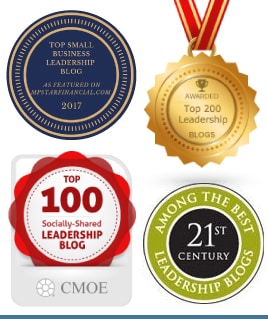Everything good that happens between people at work comes down to one thing – trust.
Yet the more I work with leadership teams, and the deeper I dive into leadership research, the more convinced I’m becoming that we often overlook this vital foundation.
Without it, you’re going to find it difficult to achieve anything worthwhile with another person, group of people, or (as we’ve seen during the COVID global landscape) at a societal level. When I reflect on my own professional relationships, high trust has always been at the epicentre of the best ones. Conversely, low trust relationships have been bumpy rides.
And yet, although most of us know that trust is paramount to any successful leadership practice, it can be harder to pinpoint exactly what it is and how, as a leader, we can nurture it.
I’ve come across two types of interpersonal trust from leadership research literature which I find super helpful: cognitive trust and affective trust. Both are important. But they focus on different things. In today’s blog, let’s look at how they’re different – and how you can put them both into practice.
Cognitive vs. affective trust
Cognitive trust is about your capability, competence, and dependability. Can I rely on you? Will you follow through on your promises? Do you do what you say you’ll do? How skilled are you at X?
Affective trust depends on your warmth, interpersonal care, concern, and the emotional bonds you share with another person or group. Do you genuinely care about me? Do you demonstrate warmth and goodwill in our interactions? It’s even, to a certain extent, about likeability.
One way to view these two types of trust is that with affective trust, we might ask, “What are your intentions towards me? Are they positive or negative?” When it comes to cognitive trust, we might ask, “How capable are you at carrying out those intentions?
Although both types of trust are important to nurture, it’s better to prioritise affective trust at the beginning of any working relationship. That’s because people need to be open to working with you before you get the chance to focus on cognitive trust. They’re more likely to do this if you’ve built strong affective trust. Then over time, through repeated interactions, you can work on building cognitive trust.
So how do you go about building both affective and cognitive trust? Here are three simple ways:
Show some vulnerability. The research is compelling. When a leader models some level of vulnerability with their team, it increases trust, creates psychological safety, and makes it ok for others to behave in the same manner. In a high trust team, you’ll commonly hear phrases like, “I’ve made a mistake”, “I’m sorry”, or “I’m struggling with this…can you help?”. People will be reluctant to do this unless they see it modelled by the leader of that team.
Be transparent with your intentions. Being clear with your intentions and providing context to whatever you’re communicating is a critical step in nurturing a trusting relationship. Our brains tend to fill in the gaps – usually with the worst possible scenarios. Don’t leave it up to chance for people to work out your ‘why’. This is especially important when you’re leading change, leading your team through rough waters, or are about to give someone constructive (or my preferred term, re-directional) feedback. In that last scenario, you might say something like, “I want you to be as successful as possible and help you succeed at this project. So can I share some feedback with you that you might find helpful?”
Follow through and be reliable. Be hyper cognisant of what you promise and commit to. Make sure that whenever possible, you do what you said you would do. If circumstances change and you can’t follow through, see point one and point two above. Share status updates often – ideally before the fact, not afterwards. Avoid over promising (this is a particular work-on for enthusiastic people pleasers like me, who have a tendency to overcommit!). Regularly ask yourself, what have I promised my team or direct reports? Am I delivering on these?
We know that trust is the bedrock of every healthy relationship. So it’s no surprise that it’s also something I believe every leader must nurture and prioritise. So I’m going to leave you with this question – what are ways you are building both affective and cognitive trust with your team?





Have used the lifeline exercise and another version of 3 Defining Moments. You need to have a base level of trust established, if you do this exercise can be a real unlock. Loved the article Suzi, and particularly the 3 ways to build trust.
I’m going to share this with other leaders. Great information.
Kedibone
Hi Suzi,
Like you, I believe trust is critical.
With the entrepreneurs and senior leadership teams I work with, I ask them to go through the Lifeline Exercise (by Andy Chan) as a group. I take part too–in fact I often go first and share deeply on personal and professional experiences related to recovery.
The exercise causes people to share in a vulnerable way. At least, as vulnerable as they can be in the moment.
Here’s a link to the one-page handout needed for the exercise:
https://www.scribd.com/document/365984483/Lifeline-Exercise
Cheers,
David
Love this David! Thanks so much for sharing it with us cheers Suzi 🙂